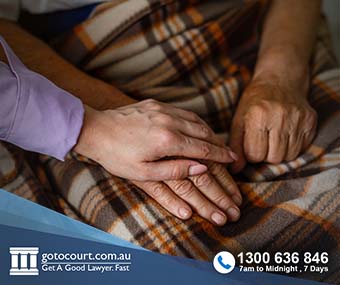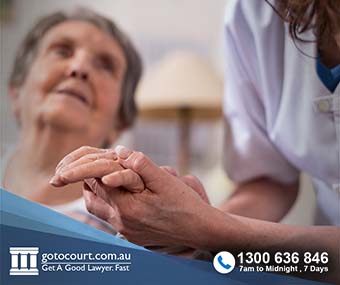Duty of Care (ACT)
Duty of Care (ACT)
Duty of care is a common law concept that denotes a person’s responsibility to act with care towards other people. If someone owes a duty of care to someone, they must take care to avoid causing that person harm. When someone is negligent in this duty, the injured party can claim compensation if they experience a personal injury, property damage or financial loss. The Civil Law (Wrongs) Act 2002 sets out a legal framework for duty of care in the ACT. This page explains the duty of care and negligence claims in the ACT
Duty of care legislation
Under the Civil Law (Wrongs) Act 2002, a person with a duty of care is expected to exercise the standard of care that a reasonable person would in the same position in possession of the same facts. There is other legislation that also imposes a duty of care responsibilities on people in the ACT. For instance, the Workers Compensation Act 1951 and the Safety, Rehabilitation and Compensation Act 1988 apply a duty of care in the workplace. Similarly, the Domestic Animals Act 2000imposes a duty of care on animal owners to keep their pets from causing injury to another animal or person.
Duty of care relationships
A duty of care can arise in any area of life. In the ACT, the law recognises that some relationships have an inherent duty of care because of the level of control and reliance between the parties.
Examples of established duty-of-care relationships include:
- Employer to workers;
- Government to visitors in public spaces (such as parks and roads);
- Shopping centre and theme park operator to visitors;
- Manufacturer or producer to consumers;
- Driver to other road users.
When a case involves an unrecognised duty of care relationship, the court will determine if a duty of care existed between the parties. The court makes this assessment by determining if there is a resemblance to an already recognised duty of care relationship.
This involves consideration of factors such as:
- the proximity of the relationship;
- the degree of control one person had over another; and
- The degree of vulnerability and reliance of one for the other.
Non-delegable and vicarious liability
While a duty of care can sometimes be delegated, some duty of care responsibilities cannot be transferred to another person or entity. In these circumstances, an individual cannot delegate their duty of care to an agent working on their behalf. In the ACT, a non-delegable duty of care relationship exists between employer and employee, hospital and patients, and school and students.
Additionally, a person or entity can be vicariously liable for the negligence and misconduct of its agents. Take the case of an employee who is sexually harassed at work by another employee. The employer has a non-delegable duty to all employees to create a safe working environment, and they cannot delegate away this duty of care to a manager, workplace safety officer or HR officer. In addition, an employer is vicariously liable for the acts of its employees committed in the course of employment, so it can be held liable for the employee’s sexual harassment, even if there is no proof that the employer was at fault.
No duty of care
Not every relationship in the ACT has a duty of care. Strangers owe each other no duty of care unless they engage in an activity where a duty arises (such as driving). Even when it is logical to assume there is a duty of care because there is proximity, control and reliance, there may be a legislative exception. For instance, Good Samaritans do not incur personal liability if they act honestly and without recklessness to give assistance to a person in an emergency. However, this protection does not apply if the Good Samaritan is impaired by a recreational drug. Similarly, a person volunteering for a charitable organisation or donating food cannot be held responsible for harm resulting from their acts if they acted in good faith.
Types of injury and damage
A person who suffers a personal injury because of someone else’s negligence may have a legal claim for compensation. Personal injuries include physical damage and disability, and also mental harm. A person might also experience property damage because of a breach of duty of care. For example, a wall might collapse because of a builder’s negligence during construction. Additionally, a person can suffer economic or financial loss because of a breach of duty of care. This might happen if a client loses money because they follow their financial advisor’s negligent advice.
Limitation period on duty of care
In the ACT, the Limitation Act 1985 provides a general limitation period of six years for a claim relating to a breach of duty of care. However, the time limit is shorter for personal injury claims. An injured person only has three years from the date of the personal injury to claim damages, and five years if the incident was a motor vehicle accident. There is no limitation period in the ACT when the claim relates to childhood abuse. A person must abide by their duty of care, otherwise they are usually liable for any damages.
Please contact Go To Court Lawyers’ civil law division on 1300 636 846 if you require legal advice on duty of care in the ACT. Our experienced solicitors can represent you on any legal matter.

Affordable Lawyers
Our Go To Court Lawyers will assist you in all areas of law. We specialise in providing legal advice urgently – at the time when you need it most. If you need a lawyer right now, today, we can help you – no matter where you are in Australia.How It Works




1. You speak directly to a lawyer
When you call the Go To Court Legal Hotline, you will be connected directly to a lawyer, every time.

2. Get your legal situation assessed
We determine the best way forward in your legal matter, free of charge. If you want to go ahead and book a face-to-face appointment, we will connect you with a specialist in your local area.

3. We arrange everything as needed
If you want to go ahead and book a fact-to-face appointment, we will connect you with a specialist in your local area no matter where you are and even at very short notice.






















